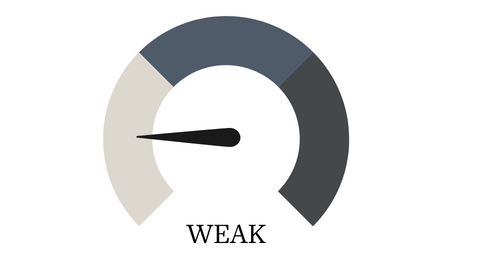Neuropathy, characterized by nerve pain, numbness, and tingling, affects the peripheral nerves and can result from conditions such as diabetes, autoimmune disorders, or toxin exposure. Earthing, or grounding, is a practice that involves connecting directly to the Earth's surface. It has garnered attention for its potential to reduce inflammation, alleviate stress, and improve circulation—all factors that may help relieve neuropathy symptoms.
Does Earthing Help with Neuropathy?
While no direct scientific studies link earthing to neuropathy relief, anecdotal reports and related studies suggest potential benefits. Grounding has shown effectiveness in reducing inflammation and stress, which could ease some of the discomfort associated with neuropathy. However, it's important to note that these findings are speculative, and further targeted research is needed to establish a clear connection.
Rating of Evidence: Weak

The evidence supporting earthing's role in alleviating neuropathy is WEAK. While general studies suggest benefits in reducing inflammation and stress, no scientific research directly connects earthing to neuropathy. Existing evidence is largely anecdotal or based on broader health claims.
Pros:
- Reduced Inflammation: Research indicates that earthing has the potential to significantly reduce inflammation, offering hope for those seeking relief from nerve pain and improved nerve health.
- Improved Circulation: Grounding enhances blood flow, potentially delivering more oxygen and nutrients to damaged nerves.
- Stress Reduction: Earthing reduces chronic stress, a known factor that can exacerbate neuropathy.
- Comforting Practice: Earthing is noninvasive and natural. It poses minimal risk and can be easily integrated into existing treatments, providing a sense of comfort and reassurance.
Cons:
- Lack of Direct Evidence: No scientific studies directly link earthing to neuropathy relief, making most claims speculative.
- Placebo Effect: Some reported benefits may result from psychological factors rather than physiological changes.
- Individual Variability: Responses to earthing vary from person to person, making it difficult to predict how effective it might be for each individual.

Related Articles:
What is Grounding or Earthing?
Best Brands of Grounding Shoes
Scientific Evidence
No direct studies specifically examine the impact of grounding (earthing) on neuropathy. However, research supports the potential for earthing to alleviate symptoms commonly associated with neuropathy, such as inflammation, poor circulation, stress, and pain.
In a study by Chevalier, grounding reduced blood viscosity by increasing red blood cells' zeta potential, thus improving circulation (1). Improved circulation can aid in delivering oxygen and nutrients to nerve cells, potentially benefiting those with neuropathy.
Moreover, research from Oschman highlights earthing's role as a universal anti-inflammatory remedy. Since inflammation is a significant factor in neuropathy, grounding may help reduce nerve pain by mitigating inflammatory responses (2).
Grounding has also been linked to lower cortisol levels and improved sleep quality, which is essential for nerve health. In a study on grounding during sleep, subjects experienced reduced stress, improved cortisol profiles, and enhanced sleep quality (3). Stress and poor sleep are known to exacerbate neuropathy symptoms, and by improving these factors, grounding could indirectly benefit individuals with nerve pain.
Numerous anecdotal reports suggest earthing may provide relief from neuropathic pain. For example, testimonials from Abilities.com describe individuals experiencing significant improvements in chronic leg pain and restless leg syndrome after consistently using grounding products. One individual reported that after 18-20 months of sleeping grounded, their neuropathy symptoms disappeared entirely, though these results are not universally guaranteed.
While compelling anecdotal evidence exists, such as in a blog post on biohacks discussing grounding as a natural intervention for neuropathy, it underscores the pressing need for more scientific research. This research is crucial to substantiate the potential benefits of grounding for neuropathy, and to provide a clearer understanding of its role in pain relief and improved sleep.
Grounding holds significant promise in addressing symptoms associated with neuropathy, such as pain, inflammation, and stress. While no direct scientific studies have linked earthing to neuropathy, the existing research on inflammation, circulation, and stress reduction provides a strong case for its potential benefits. Numerous anecdotal reports further suggest that grounding may help alleviate neuropathy symptoms. This reassures us of the potential of grounding as a low-risk, complementary practice that could be considered alongside traditional treatments to enhance overall well-being.
References:
- Chevalier, Gaétan, et al. “Earthing (Grounding) the Human Body Reduces Blood Viscosity-a Major Factor in Cardiovascular Disease.” Journal of Alternative and Complementary Medicine (New York, N.Y.), U.S. National Library of Medicine, Feb. 2013, www.ncbi.nlm.nih.gov/pmc/articles/PMC3576907/.
- Sinatra, Stephen T, et al. “Grounding - the Universal Anti-Inflammatory Remedy.” Biomedical Journal, U.S. National Library of Medicine, Feb. 2023, www.ncbi.nlm.nih.gov/pmc/articles/PMC10105021/.
- D;, Ghaly M;Teplitz. “The Biologic Effects of Grounding the Human Body during Sleep as Measured by Cortisol Levels and Subjective Reporting of Sleep, Pain, and Stress.” Journal of Alternative and Complementary Medicine (New York, N.Y.), U.S. National Library of Medicine, pubmed.ncbi.nlm.nih.gov/15650465/. Accessed 15 Sept. 2024.
About the Author



1 comment
Can I do grounding with charlot neuropathy, and diabetic neuropathy?? Thanks in advance